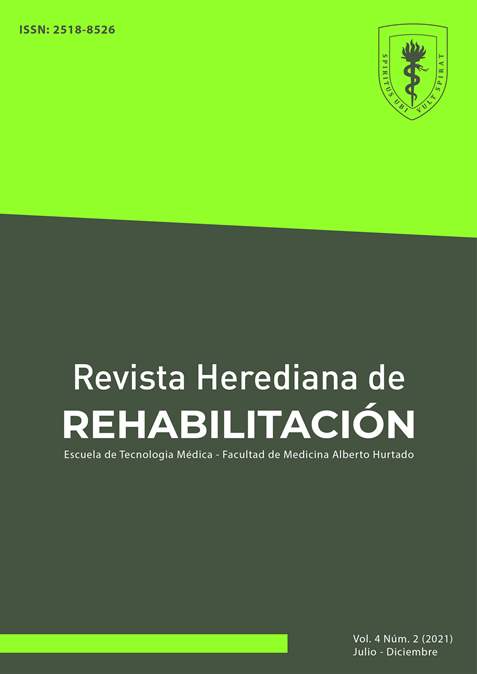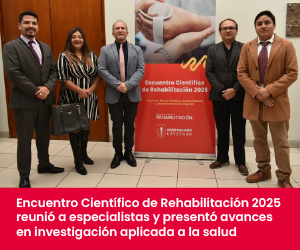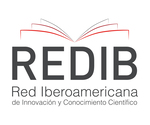Tratamiento psicolingüístico en una niña con discapacidad intelectual
DOI:
https://doi.org/10.20453/rhr.v4i2.4161Resumo
Las dificultades en la adquisición de la lectura genera la necesidad en todos los profesionales rehabilitadores del lenguaje a integrar nuevos tratamientos con el objetivo de atender las necesidades de inclusión escolar y disminuir la falta de estudios en fonoaudiología que justifiquen un modelo de intervención psicolingüístico en niños con discapacidad intelectual que asisten a escuelas regulares. Objetivo: Determinar si un programa psicolingüístico mejora la lectura en una niña con discapacidad intelectual leve. Material y Métodos: La investigación fue deductiva y de diseño experimental. El instrumento empleado para diseñar el programa fue el Test de Illinois de Aptitudes Psicolingüísticas y se recogieron datos para la línea base, durante y después del tratamiento con la sub-prueba de lectura Evalúa 1. Resultados: Luego de calcular el índice para la estimación del tamaño del efecto, el valor nos indica que el programa fue un tratamiento muy efectivo y de efecto grande. Conclusión: El modelo psicolingüístico como tratamiento para mejorar la lectura funcionó; sin embargo, ese efecto no llegó al valor de normalidad.
Downloads
Publicado
Como Citar
Edição
Seção
Licença
Todos los artículos publicados en la Revista Herediana de Rehabilitación están protegidos por una una licencia Creative Commons Reconocimiento 4.0 Internacional.
Los autores conservan los derechos de autor y ceden a la revista el derecho de primera publicación, con el trabajo registrado con la Licencia de Creative Commons, que permite a terceros utilizar lo publicado siempre que mencionen la autoría del trabajo, y a la primera publicación en esta revista.
Los autores pueden realizar otros acuerdos contraactuales independientes y adicionales para la distribución no exclusiva de la versión publicada en esta revista, siempre que indiquen claramente que el trabajo se publicó en esta revista.
Los autores puede archivar en el repositorio de su institución:
El trabajo de investigación o tesis de grado del que deriva el artículo publicado.
La versión preimpresa: la versión previa a la revisión por pares.
La versión posterior a la impresión: versión final después de la revisión por pares.
La versión definitiva o versión final creada por el editor para su publicación.












 Esta obra está bajo una
Esta obra está bajo una 